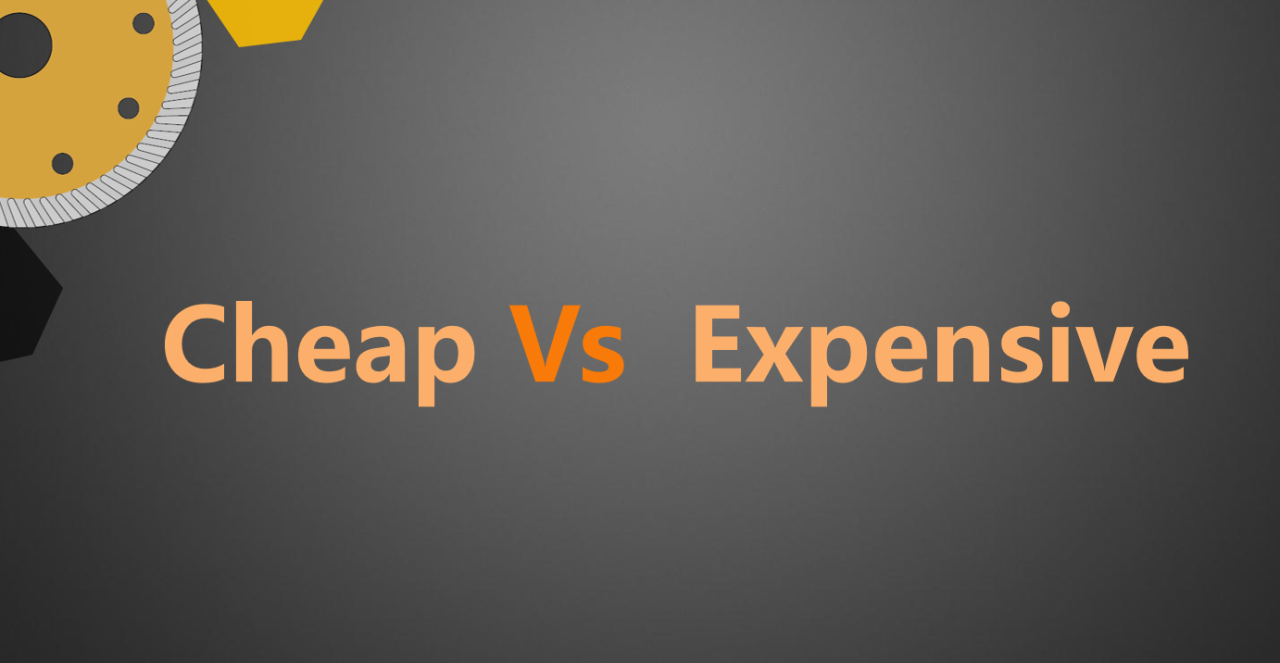Mon–Sat, 9 AM – 5 PM

Why Cheap is Not Always Inferior, But Not Always the Best Choice Either
When it comes to purchasing products, we often associate high prices with quality and low prices with inferiority. However, this is not always the case. In this blog, we will explore the psychology of expensive vs. cheap and why cheap is not always inferior, but not always the best choice either.
The Perception of Value
The perception of value is a crucial factor in the psychology of expensive vs. cheap. Consumers tend to associate high prices with quality and low prices with inferiority. This perception can be influenced by factors such as marketing, brand reputation, and personal experiences. However, it's important to remember that this perception is not always accurate.
The Impact of Branding
Brand reputation plays a significant role in the psychology of expensive vs. cheap. Consumers often associate well-known and established brands with high quality and reliability, which can influence their purchasing decisions. However, lesser-known brands or generic products may offer comparable quality at a lower price.
The Role of Quality
The quality of a product is another essential factor in the psychology of expensive vs. cheap. Higher-priced products often come with better materials, design, and manufacturing processes, resulting in superior quality. However, lower-priced products may also offer decent quality, depending on the manufacturer's expertise and level of quality control.
The Importance of Personal Preferences
Personal preferences play a crucial role in the psychology of expensive vs. cheap. Consumers have different needs, tastes, and preferences, which influence their purchasing decisions. Some consumers may be willing to pay a premium price for a product that aligns with their preferences, while others may opt for a cheaper alternative that meets their needs.
The Pros and Cons of Cheap
While cheap products may seem like an attractive option, there are pros and cons to consider. On the one hand, cheaper products can save consumers money, making them more accessible to a broader range of people. On the other hand, cheaper products may have lower quality, durability, and reliability, resulting in a shorter lifespan and higher replacement costs in the long run.
Conclusion: The psychology of expensive vs. cheap is complex, and there are no easy answers. While expensive products may offer superior quality and brand recognition, cheaper products may offer comparable quality and affordability. However, it's essential to consider factors such as personal preferences, quality, and brand reputation when making purchasing decisions. At Refurbay, we believe in offering high-quality refurbished products at an affordable price, ensuring that our customers get the best value for their money. Our refurbished computers may be cheaper than new devices, but they undergo rigorous refurbishing processes to ensure quality, reliability, and performance. So, while cheap may not always be inferior, it's essential to consider all factors when making purchasing decisions.
{"one"=>"Select 2 or 3 items to compare", "other"=>"{{ count }} of 3 items selected"}
Leave a comment